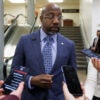The Washington Post reports that President Obama wants the federal government to continue to have a major role in housing finance, perhaps by creating a new version of Fannie Mae and Freddie Mac. Despite an almost immediate denial of the story by Deputy Treasury Secretary Neal Wollin, the Post’s account is so detailed that it is likely to be true.
The story is given extra credence by the fact that it tracks with the Obama Administration’s February comments about the future of housing finance: “As Fannie Mae and Freddie Mac are wound down, we must design a transition that allows for continued [government] support of the housing market, so that Americans continue to have the ability to take out a mortgage to buy a home or refinance their existing mortgage” (page 27).
Any new or revised form of Fannie Mae or Freddie Mac would be a huge mistake that would end up costing taxpayers yet more billions of dollars to bail out eventually. Already, taxpayers are on the hook for more than $150 billion that has gone to the existing housing finance giants because of losses they suffered when the housing bubble burst in 2007.
Both Fannie Mae and Freddie Mac must be permanently and completely closed as quickly as the process can be responsibly completed. And under no circumstances should they be replaced with a program that would inevitably grow into a new Fannie Mae.
This is not a radical notion. According to the Post story, both Obama’s former Council of Economic Advisors Chairman Austan Goolsby and former National Economic Council Chairman Lawrence Summers—neither exactly a conservative—favored ending Fannie Mae and Freddie Mac and not replacing them. The story says that Goolsby “argued that the federal role in housing distorts the free market. By subsidizing mortgage investments, he argued, the government drives capital away from other types of investments—for example, those in companies developing environmentally friendly technology. He also warned that the government is putting enormous sums of taxpayer money on the line while conveying little actual benefit to home buyers.”
Assuming that the story’s account is accurate, Goolsby is exactly right. The private sector is more than capable of creating mortgage-backed securities and pricing an appropriate guarantee. In the future, the housing finance system should not contain anything similar to Fannie Mae, Freddie Mac, or any clone of either. That should be the guiding principle of housing finance reform.































13 Replies to “A New Fannie Mae and Freddie Mac? Even Former Obama Advisers Say No!”